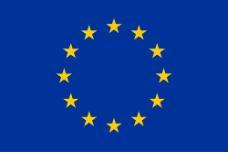About our Projects
We are a Faculty with proven success in delivering business assistance and partnership projects. We are proud of our engagement with local, national, european and international partners.
From major projects with multiple partners to support for individuals and small companies, we offer the same enthusiasm and professionalism.
View our Current Projects page to view our work. You can also view information about Past Projects to see other ways in which we can work with you.
For more information about projects and knowledge transfer:
Dr Francesco Paradiso - Research and Impact Development Manager
Dr Francesco Paradiso is a Senior Research Fellow. He holds a PhD in Philosophy from the University of New South Wales, Australia. He joined the University of Wolverhampton in 2015. He engages in research development and bid development across the Faculty of Arts, Business and Social Sciences.
Current projects
Click the + to read more about projects completed by our Faculty.
FEINART is a University of Wolverhampton-coordinated Marie Sklodowska-Curie ITN (Innovative Training Network) Early Stage Reseachers’ (ESRs) programme.
The project is an extensive collaboration between degree-awarding research-centres in political philosophy, art theory/practice and curatorial studies/arts management, and the independent European art sector, as the basis for the first interdisciplinary and holistic investigation of the democratic role and function of socially engaged art in Europe.
In this it will train 11 ESRs in order to provide the relevant academic and non-academic skills to engage with the challenges of this new artistic and cultural landscape. The 11 ESRs will be spread across four academic Beneficiaries (University of Wolverhampton, University of Iceland, University of Edinburgh, Zeppelin University, Germany) and 7 Partner Organizations (Tensta Konstall, Sweden; BAK, Netherlands; State of Concept, Greece; W-Est, Italy; Tranzit.ro, Romania; Biennale Warsawa, Poland, and the Iceland University of the Arts, Iceland).
The training programme will provide invaluable data about the distribution, impact, and role of socially engaged art as a future contribution to funding policy recommendations on state support of art beyond the museum’s traditional functions, and debates on art and public culture.
Start: 1 March 2020
End: 29 February 2024
Funding stream: Marie Sklodowska-Curie Innovative Training Network (ITN)
Total grant: €3,046,837.32
Grant number: 860306
Project website: https://feinart.org/
More information: Prof John Roberts, Dr Francesco Paradiso and Mr Fabian Erwig

This project has received funding from the European Union’s Horizon 2020 research and innovation programme under the Marie Skłodowska-Curie grant agreement No 860306
The University of Wolverhampton has secured almost £10,000 funding to create awareness of organ donation in the Sikh community.

The University’s Centre for Sikh and Panjabi Studies and the School of Art academic researchers, with the guidance of NHS Clinical Teams and Sikh Donor/Recipient families, will commission artwork/digital media work that promotes Donation and Law Change whilst at the same time debunking ‘myths’. Two to three quality art projects, for example, filmmakers, animators, will be produced following a national competitive call.
The funding has been awarded by the NHS Blood and Transplant’s Community Investment Scheme which is committed to building support for donation amongst Black, Asian, mixed heritage and minority ethnic communities.
The scheme funds community and faith/beliefs organisations to drive awareness, understanding and behaviour change. Now in its third round, the scheme has broadened its scope to cover a range of health inequalities including organ and blood donation.
For many patients in need of a transplant the best match will come from a donor from the same ethnic background. In the UK there are currently estimated to be at least 2,569 people on the waiting list for a kidney transplant and 580 of those are from Black, Asian or minority ethnic backgrounds. Kidney donors and recipients are matched by blood group and tissue type, and people from the same ethnic background are more likely to have matching blood groups and tissue types.
Black, Asian and minority ethnic patients often have to wait significantly longer for a successful match than white patients, due to a shortage of suitably matched donors.


/prod01/wlvacuk/media/departments/digital-content-and-communications/images-2024/240328-Varsity-Line-Up-Resized.jpg)
/prod01/wlvacuk/media/departments/digital-content-and-communications/images-18-19/220325-Engineers_teach_thumbail.jpg)
/prod01/wlvacuk/media/departments/digital-content-and-communications/images-2024/240404-Digital-Humanities-Training-Resized.jpg)
/prod01/wlvacuk/media/departments/digital-content-and-communications/images-2024/240320-Uzbekistan-Resized.jpg)
/prod01/wlvacuk/media/departments/digital-content-and-communications/images-2024/240229-The-Link-Resized.jpg)
/prod01/wlvacuk/media/departments/digital-content-and-communications/images-2024/240404-Pharmacy-Students-Resized.jpg)